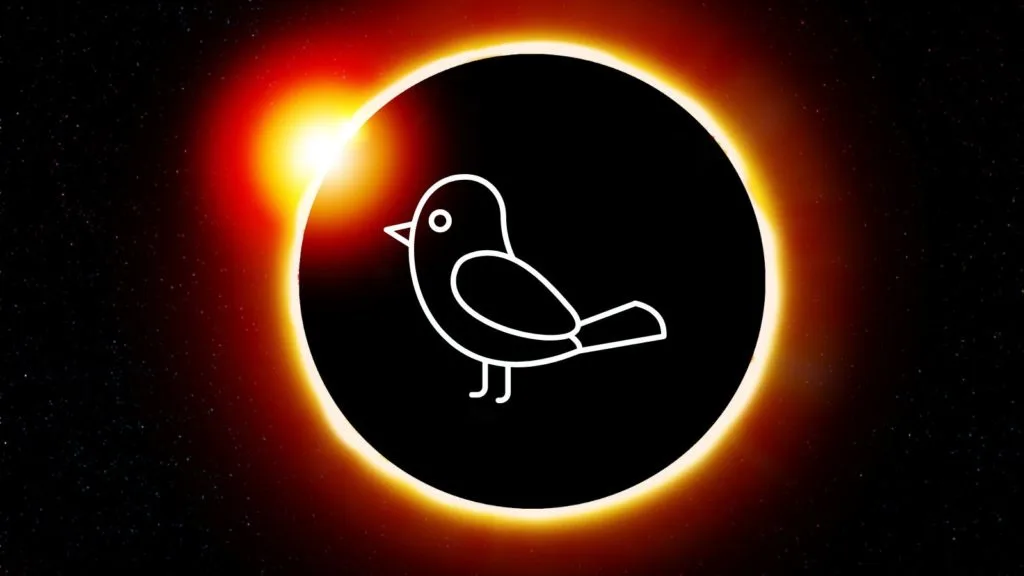An eclipse, whether solar or lunar, is a fascinating astronomical event not only for humans but also for the natural world. Wild birds, in particular, exhibit interesting behaviors during these occurrences, which have intrigued ornithologists and nature enthusiasts alike. Let’s look at what wild birds do during an eclipse, whether they can sense its coming, their vocal activity during the event, and how their behavior might differ between solar and lunar eclipses.

Sensing the Eclipse
Birds, known for their keen senses and adaptability, seem to have an innate ability to detect the onset of an eclipse.
While it’s not entirely clear if they can sense the astronomical event itself, they definitely react to the environmental changes it causes. The gradual dimming of light and the drop in temperature that accompany an eclipse, especially a total solar eclipse, can trigger responses in birds that are akin to their natural behaviors at dusk.
This suggests that birds may not perceive the eclipse as a distinct event but rather as an unexpected shift in the time of day.
Behavioral Changes During an Eclipse

If you enjoy coloring, don’t miss our Eclipse Coloring Book!
As the sky darkens during a solar eclipse, birds often exhibit behaviors typical of their routines at sunset.
Observations have noted that some diurnal birds will cease their daytime activities and head to their roosts, while nocturnal birds may become temporarily active, confused by the sudden night-like conditions.
For instance, during the total solar eclipse in North America in 2017, there were widespread reports of birds appearing to settle down for the night, only to become active again as the sunlight returned.
The singing behavior of birds during an eclipse is particularly noteworthy. Many birds that are vocal during the day fall silent as the eclipse progresses, mirroring their behavior at dusk.
Conversely, some species that sing at night might start vocalizing in what they perceive as the early onset of evening. This shift not only underscores the impact of light levels on bird behavior but also provides a unique acoustic backdrop to the celestial event.
Solar vs. Lunar Eclipse Responses
The difference in bird behavior between solar and lunar eclipses is primarily attributed to the nature of these events.
A solar eclipse, particularly a total one, brings about a significant and rapid change in daylight, closely mimicking the transition from day to night and then back again within a short period. This dramatic shift is more likely to elicit noticeable changes in bird behavior, including reduced activity among diurnal species and a temporary period of activity in nocturnal birds.
Lunar eclipses, on the other hand, tend to have a subtler impact. Since they occur at night and involve a gradual dimming of the moon’s light rather than the sun’s, the change in environmental conditions is less pronounced.
Birds might not react as strongly to a lunar eclipse as they do to a solar one. Observational data suggest that lunar eclipses have minimal effect on bird behavior, with no significant changes in vocalization or activity levels reported.
Can Birds Sense an Eclipse is Coming?
There’s ongoing debate and research into whether birds can anticipate an eclipse.
Some anecdotal evidence suggests that birds may alter their behavior in advance of an eclipse, but it’s difficult to determine whether this is due to a direct sensing of the impending event or a reaction to early changes in environmental conditions.
The consensus among scientists is that while birds are highly sensitive to changes in light and temperature, there’s no concrete evidence to suggest they can predict an eclipse.
Eclipses, both solar and lunar, present a unique natural experiment that affects not just humans but wildlife as well. Wild birds, with their sensitivity to environmental changes, provide fascinating case studies during these events. Their behaviors, from seeking roosts during a solar eclipse to altering their singing patterns, underscore the profound impact of celestial phenomena on the natural world.
While there’s much we have learned, the full extent of how birds react and whether they can anticipate such events remains a field ripe for further study. What is clear, however, is that eclipses do more than just captivate our gaze upwards—they momentarily blur the lines between day and night, offering a glimpse into the adaptability and resilience of the natural world.
- 8 Letter Bird Names - August 14, 2024
- 7 Letter Bird Names - August 14, 2024
- 7 Birds Named After Famous People - July 23, 2024
